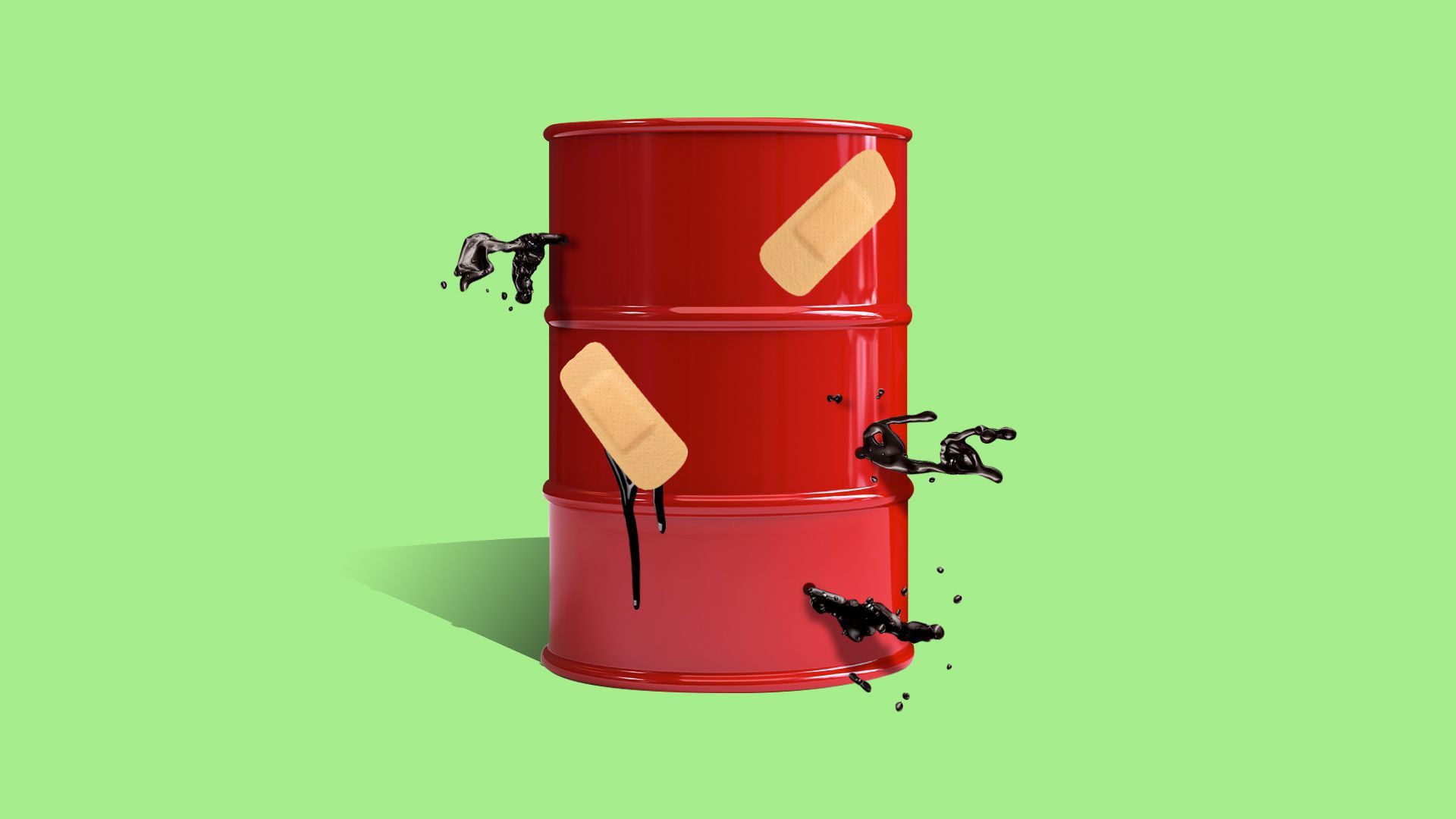OPEC's stalemate fuels White House worries
Add Axios as your preferred source to
see more of our stories on Google.

Illustration: Aïda Amer/Axios
U.S. oil prices reached a six-year high Tuesday morning after OPEC+ talks on production increases fell apart in recent days — a stalemate that will add more upward pressure on rising U.S. gasoline prices. The White House wants more OPEC+ barrels on the market.
Driving the news: OPEC and allied producers led by Russia deadlocked on specifics of their ongoing return from joint production curbs last year when the pandemic crushed demand.
- The United Arab Emirates is upset with how its production would be allotted under the complicated formula, per multiple reports.
- WTI, the U.S. benchmark, reached almost $77 earlier in the day.
Why it matters: Unless something changes, more barrels the market had been expecting next month won't arrive.
"The additional 500,000 to one million barrels a day increase in production expected won’t be materialising for now. Given the oil market is so tight, prices are unsurprisingly on the rise," Oanda analyst Sophie Griffiths said in a note Tuesday.
The big picture: U.S. gasoline prices are at their highest levels in over six years as summer travel is underway, and currently average around $3.13-per-gallon as of Tuesday morning, according to AAA.
"The United States is closely monitoring the OPEC+ negotiations and their impact on the global economic recovery from the COVID-19 pandemic," a White House spokesperson said Monday.
- The spokesperson said U.S. officials "have been engaged with relevant capitals to urge a compromise solution that will allow proposed production increases to move forward."
- Reuters' piece on the White House statement notes that rising oil prices are fueling inflation concerns and that White House aides want stable market conditions.
- Republicans, per Politico, are seeking political mileage from gas price increases.
What they're saying: Goldman Sachs analysts say higher prices are expected as physical markets tighten, but suggest that outright chaos is unlikely.
- "Big picture, the differences between both parties seem surmountable as they agree on ramping-up production into year-end with the still high uncertainty for 2022 oil balances making a pledge to any long-term commitment unnecessary today," they write in a note.
What we don't know: The OPEC+ endgame.
"The situation can still change of course and prices can normalize as unofficial talks are always ongoing and there could be a sudden breakthrough," Rystad Energy analyst Louise Dickson said in a note.
But Dickson adds, "The lack of an official new meeting date is worrying the market."
